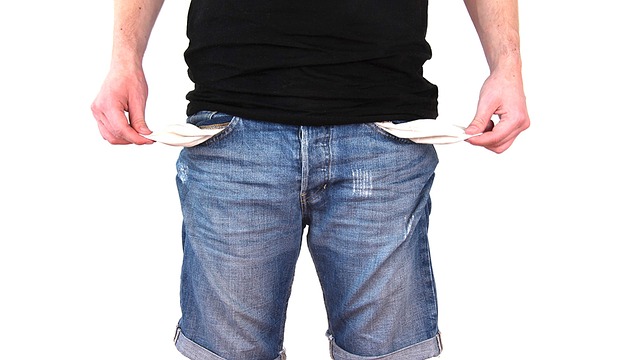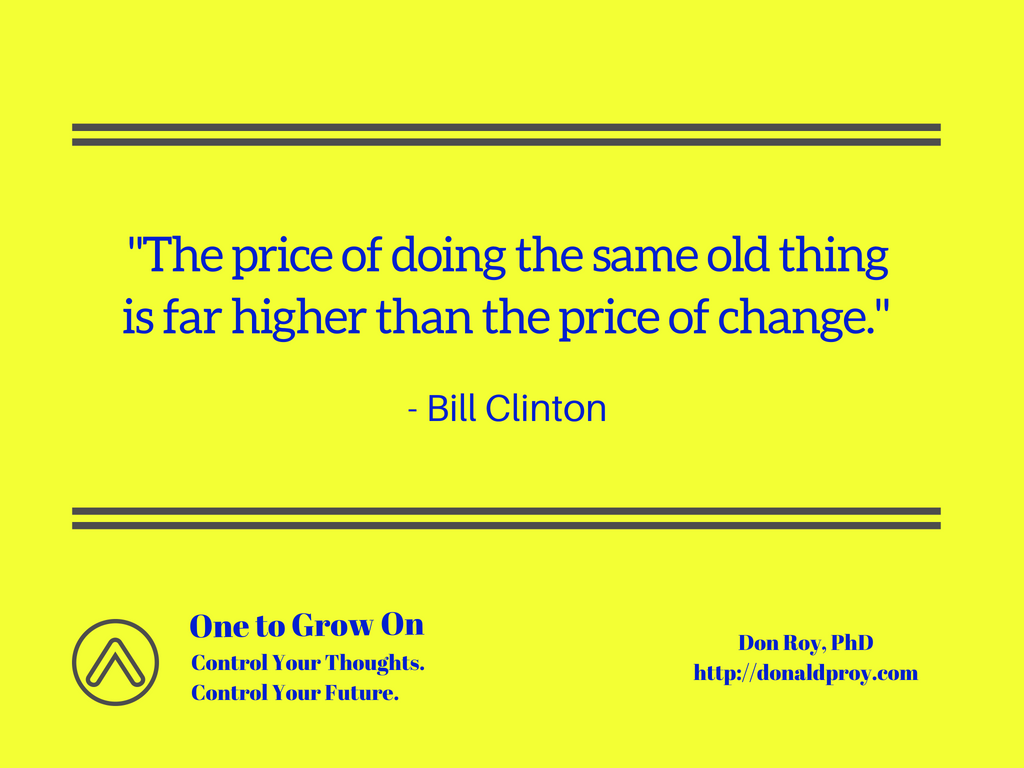Another week, another quote about change. I reflected on change as a driver for growth in my last post (see “Change for the Better“). In short, personal growth will not occur without a willingness to acknowledge a need for change.
This week, attention shifts to consequences of not embracing change. Bill Clinton, the 42nd president of the United States, reminds us that the price of change can be exceeded by the price of being set in our ways.
This idea addresses the dark side of change: Ignore the need at your own peril.
Pay Now or Pay Later
The price of doing the same old thing is a bargain in the short run. For example, the couple that earns a decent income but struggles to make their paychecks last all month are not poor. Far from it, they are usually having a good time. Dining out, movies, vacations, and self-indulgences swallow a lion’s share of take-home pay. Saving for retirement or unforeseen expenses is not a high priority. So, nothing changes and they continue to earn a good income, manage to get by, and have inadequate savings. The day will come when they regret not changing their spending habits. They have chosen to pay later. The cost of doing the same old thing is a deferred expense (accruing interest) that will come due sooner rather than later. The bill comes due for doing the same old thing at inopportune times, and we are not given the option to set up a payment schedule.
In contrast, paying now to enable change can bring what seems like misery but makes possible new outcomes. I have lamented my physical condition for nearly two years. In that time, I opted to do the same old thing because nothing changed. It was as if the scale was stuck on the same weight. It only took two years, but I realized that the price of the same old thing was greater than the price of change. Now, I see changes I have made for my wellness as steps to reaching goals I have set. When I looked at the price of change in a different light, it was easy to say no to french fries, milkshakes, and skipping exercise. The benefits change will bring far outweigh saving myself from paying the price for change and maintaining status quo.
Find Your Tipping Point
The quest to a slimmer me is not my first such journey. In 2005 I shed 37 pounds, going from 200 to 163 pounds in about five months. I paid the price of change at that time only after years of choosing to pay the price of doing the same old thing. In recent years, I enjoyed myself to the point that I had put back on about two-thirds of the lost weight. Now and then the catalyst for change was simple: I reached a tipping point and decided “no more.”
The price for doing the same old thing had become too expensive. My wellness demanded change. The price of change felt like a bargain the first time, and I cannot wait to experience the value arising from change. As I see the first signs of change I am stoked about losing the first few pounds and moving toward my goals. Price to change? What price?
Discretionary Spend
Enough about my situation—you have a decision to make regarding change. Pursuing change in your life is a form of discretionary spending. In most cases, you are not required to change but you consider different outcomes. Like any other discretionary spend, you must determine whether you want to invest in change or keep things as is.
Whether it is a stressful job, noisy neighborhood, or toxic relationship, you can spend on one of two outcomes: the same old thing or change. Standing pat could feel like a better deal now, but would spending on change yield even more fruit and blessings? If yes, change is a bargain too good to pass on.


